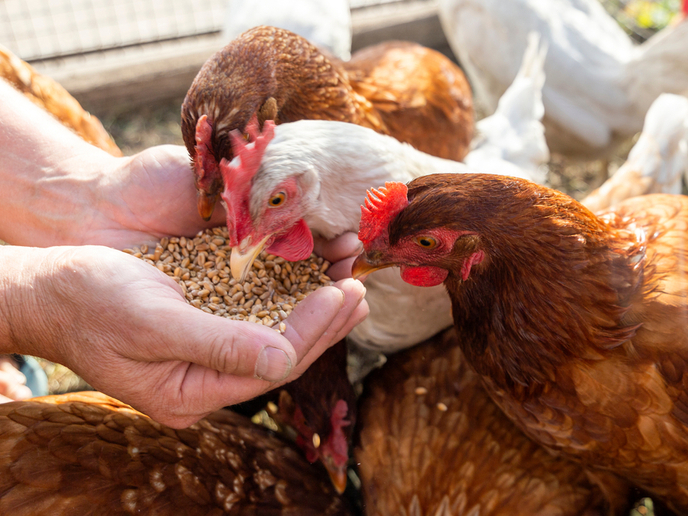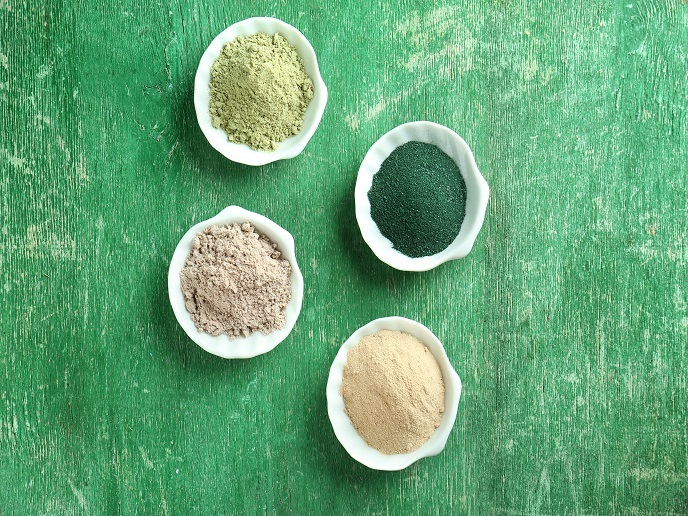Sharing knowledge and techniques across Europe’s organic farms
Every year, the EU imports around 14 million tonnes of soybean(opens in new window) to feed chicken, cattle and pigs. This presents a particular challenge for organic producers, who wish to avoid the environmental and sustainability issues associated with foreign soy production, such as tropical deforestation. The EU-funded OK-Net EcoFeed(opens in new window) (Organic Knowledge Network on Monogastric Animal Feed) project investigated alternative sources of high-protein animal feed that will help make Europe less dependent on imported protein for feed.
Seminal ideas
“We’re spreading innovation across Europe,” says project coordinator Ambra De Simone. “We’re focused on building up a network of stakeholders, collecting existing knowledge, and highlighting those solutions that might be useful across regions.” The project, coordinated by the International Federation of Organic Agriculture Movements – European Union Regional Group(opens in new window) (IFOAM Organics Europe), brought together a consortium of 18 partners across 12 countries. These include feed processors, farmers, research institutes, universities and advisory agencies. During the previous EU-funded project, OK-Net Arable, hundreds of pages of material were produced and made accessible to farmers in the Organic Farm Knowledge (OFK)(opens in new window) platform, identifying potential solutions to increase their harvest. “Bridging to animal feed was the obvious next thing to do,” adds De Simone. The OFK platform facilitates user-friendly access to a wide range of practical tools and resources including audio, books, reports, leaflets, guidelines and videos, and promotes knowledge exchange among farmers, farm advisers and scientists. During OK-Net EcoFeed the platform was expanded to include material on sustainable feed. “One of the main things to do was to find out what was working in one region and adapting it somehow to make it work in another region,” explains De Simone. “The first part was collecting all the systems out there. Then researchers investigated those that could potentially be applied to different areas.”
Serving suggestions
The project carried out 18 field trials on alternative feeds, involving more than 9 000 chickens and 1 000 pigs. “A major problem in organic is protein availability,” adds De Simone. “Most feed is soy-based, and not sustainable for organic; we tried to find alternative sources of protein.” This included Camelina sativa, an oilseed crop related to flax, which was investigated by researchers at the Italian Association for Organic Agriculture(opens in new window) (website in Italian) (AIAB). In Spain, Ecovalia(opens in new window) (website in Spanish) used protein-rich brewer’s yeast as a feed supplement for pigs. The consortium also developed a ration planning tool, an Excel-based app which allows farmers to calculate their own feed requirements based on the breed of animals they have, their stage of growth, and what sort of feed they are using. “This is the only free software that adequately meets the needs of organic animal producers,” says De Simone. “Calculations are independent of the feeding industry and are adapted to specific organic farming conditions.” The group is now seeking additional funding for the further development and maintenance of the OFK platform, which contains details on more than 2 000 farming solutions. “It started with arable cropping and feed, but there are many other projects joining,” concludes De Simone. “We have ambitions to be the leading EU platform for exchanging knowledge on organic.”







